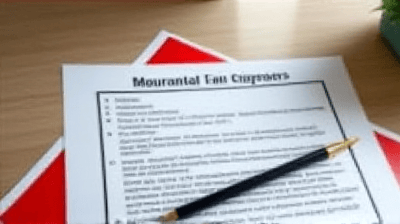Homeowners insurance is an essential safeguard for your property, assets, and financial security. However, many homeowners overlook the importance of regularly reviewing and updating their policies to ensure adequate coverage. Life circumstances, economic factors, and changes in local regulations can all impact your insurance needs.

Understanding Homeowners Insurance
What Is Homeowners Insurance?
Homeowners insurance is a type of property insurance that protects against various risks associated with owning a home. It typically covers the structure of your home, personal belongings, liability for injuries to others, and additional living expenses in case you need to relocate temporarily due to a covered event.
Common Types of Homeowners Insurance Policies
There are several types of homeowners insurance policies, each tailored to specific needs:
-
HO-1 (Basic Form): Offers limited coverage for specified perils such as fire and theft.
-
HO-2 (Broad Form): Covers a broader range of perils, adding protection against risks like falling objects.
-
HO-3 (Special Form): Provides comprehensive coverage for the dwelling against all perils except exclusions. Personal property is typically covered on a named-peril basis.
-
HO-4 (Renter's Insurance): Covers personal property for renters and provides liability coverage.
-
HO-5 (Comprehensive Form): Similar to HO-3 but offers more extensive coverage for personal property.
-
HO-6 (Condominium Insurance): Specifically designed for condo owners, covering personal property and improvements to units.
-
HO-7 (Mobile Home Insurance): Tailored for mobile and manufactured homes.
-
HO-8 (Modified Coverage Form): Designed for older homes with lower replacement costs.
Why Regular Review and Updates Are Important
Changes in Property Value
One of the primary reasons to review your homeowners insurance policy is the potential change in the value of your property. The real estate market can fluctuate, leading to an increase or decrease in home values. If your home’s value has significantly increased, your existing coverage may not be sufficient to rebuild or repair your home in case of a loss.
Modifications and Renovations
Homeowners often make modifications or renovations to their properties, which can affect the value and risk profile of the home. Updates like adding a room, finishing a basement, or installing a swimming pool increase the value and may require additional coverage. Failing to inform your insurance company about these changes could leave you underinsured.
Changes in Personal Property
As you acquire new personal belongings, such as furniture, electronics, and jewelry, their value contributes to your overall coverage needs. If you do not update your policy to reflect these acquisitions, you may find yourself without adequate protection in the event of theft or damage.
Liabilities and Risks
New liabilities can arise from changes in your lifestyle or household composition. For example, gaining a pet, starting a home-based business, or hosting frequent guests can increase your liability exposure. Regular reviews allow you to adjust your coverage accordingly.
Local Laws and Regulations
Changes in local building codes and regulations can affect your insurance policy. Updates in laws may require specific coverage or modifications to your home that could alter your insurance needs. Staying informed of these changes allows you to ensure that your policy remains compliant and adequate.
Economic Factors
Economic conditions, such as inflation and changes in construction costs, impact the amount needed to rebuild or repair your home after a loss. Often, construction costs rise due to inflation, and your current coverage may not fully compensate you for repairs or rebuilding.
How Often Should You Review and Update Your Policy?
Annual Reviews
As a general guideline, you should review your homeowners insurance policy annually. This regular check-in allows you to assess any significant changes that may have occurred in the past year. An annual review can ensure your policy aligns with your current needs and any changes in your property value, renovations, or personal circumstances.
Significant Life Events
In addition to annual reviews, you should also consider reviewing your policy after significant life events. Life changes that warrant a policy review include:
-
Buying or Selling a Home: Whether you are acquiring a new property or selling an existing one, changes in home ownership necessitate an insurance policy review.
-
Renovations and Remodeling: Major renovations can significantly increase your home’s value, affecting your coverage needs.
-
Changes in Occupancy: If you convert your home from a primary residence to a rental property or vice versa, you should update your policy accordingly.
-
Births or Deaths: Changes in your household composition may impact your liability exposure and coverage needs.
-
Retirement: If you retire and plan to spend more time at home, consider how your coverage may change.
After Natural Disasters
After experiencing a natural disaster, such as a flood, hurricane, or wildfire, it is wise to review your policy. Assess whether your coverage adequately reflects the risks associated with your geographic location, especially if your area is prone to specific natural events.

Factors to Consider During Policy Review
When reviewing your homeowners insurance policy, consider the following key factors:
Coverage Limits
Evaluate the dwelling coverage limit to ensure it reflects the current reconstruction cost of your home. Use a tool or consult a professional to determine the cost per square foot to rebuild in your area.
Personal Property Coverage
Review the limits on personal property coverage. Ensure that you account for any new valuables and higher replacement costs. You may also want to consider whether you need scheduled personal property endorsements for high-value items.
Liability Coverage
Examine your liability coverage limits. Most experts recommend having at least $ 300,000 in liability coverage. Depending on your risk exposure, consider increasing your liability limits or adding an umbrella policy for additional protection.
Deductibles
Assess the deductibles on your policy. Higher deductibles can lower your premium but may impact your financial situation in the event of a claim. Determine what deductible you can comfortably afford and adjust accordingly.
Discounts and Premiums
Inquire about available discounts and evaluate your premiums. Check for any new discounts offered by your insurer, such as ones for loyalty, bundling policies, or home security systems. Consider whether you are receiving the most competitive rate for your coverage.
Riders and Add-ons
Consider whether you need any specific riders or endorsements for coverage not typically included in a standard policy. Common riders include flood insurance, earthquake insurance, or personal property add-ons.
Review Exclusions
Revisit the exclusions in your policy. Understanding what is not covered helps you identify potential gaps in protection, so you can take measures to mitigate risks.
Practical Steps for Updating Your Policy
Document Changes
Keep thorough documentation of any changes to your property, such as renovations or acquisitions of valuable items. Taking pictures and maintaining receipts will help you convey accurate information to your insurer during the review process.
Communicate with Your Insurer
Contact your insurance agent or insurer to initiate the review process. Discuss your concerns and any relevant changes in your circumstances. They can provide insights and recommendations tailored to your needs.
Get Multiple Quotes
When updating your policy or considering changes, it is wise to obtain multiple quotes from different insurers. This practice enables you to compare coverage options and ensure you are getting the best rates for your needs.
Review Policy Documents
Read through the entire policy document again during your review process. Understanding the terms, conditions, and benefits will help you engage more effectively with your insurer and advocate for necessary changes.
Set Calendar Reminders
To ensure you stay on top of policy reviews and updates, set calendar reminders for annual check-ins. You can also schedule reminders for specific life events that may necessitate a policy review.
Consider Working with an Insurance Agent
If navigating insurance policies feels overwhelming, consider working with a knowledgeable insurance agent. They can help you understand your needs, guide you through policy options, and identify the most suitable coverage for your circumstances.
Conclusion
Regularly reviewing and updating your homeowners insurance policy is essential to ensure adequate protection for your property and personal belongings. By understanding your coverage, assessing significant life events, and staying informed about changes in regulations and economic conditions, you can make informed decisions that enhance your peace of mind. Regular check-ins, open communication with your insurer, and diligent documentation will help you maintain optimal coverage for your home.
By taking the time to review and update your homeowners insurance policy, you invest in the security and well-being of your household. As your life circumstances change, your insurance needs may also evolve, making regular reviews a crucial part of responsible homeownership.



